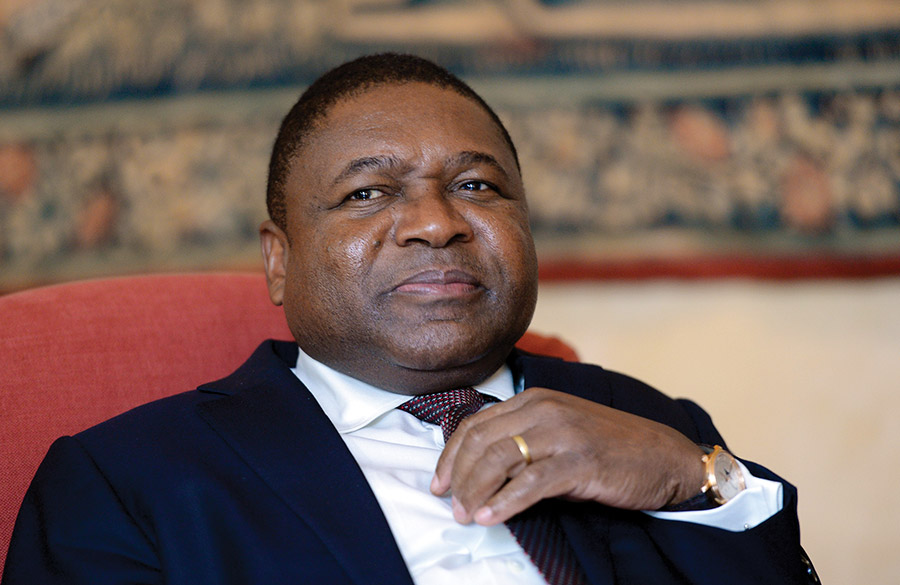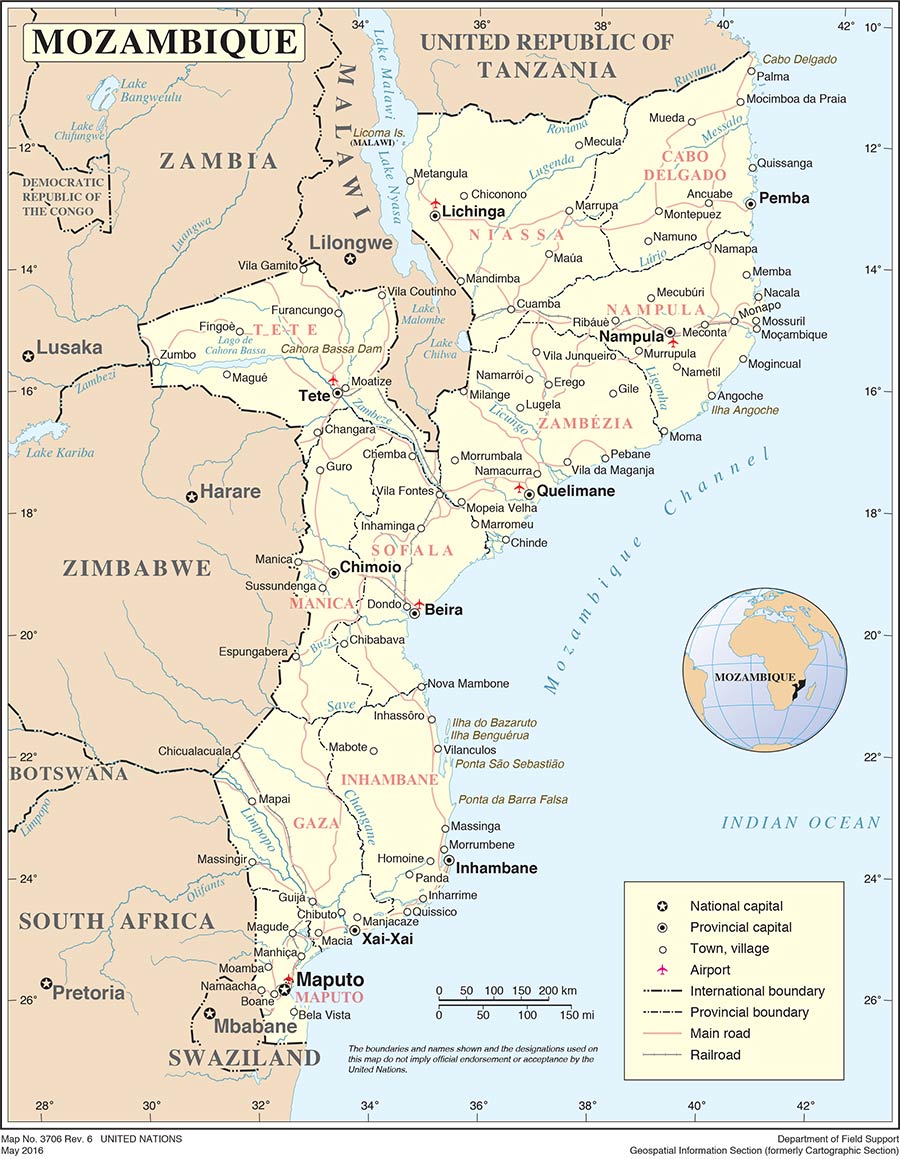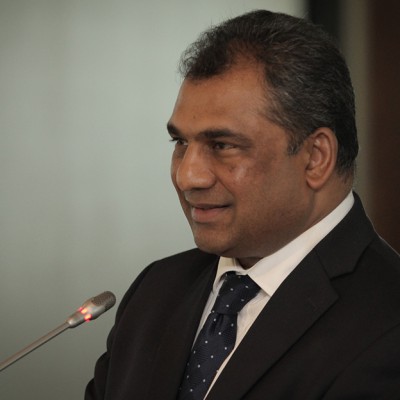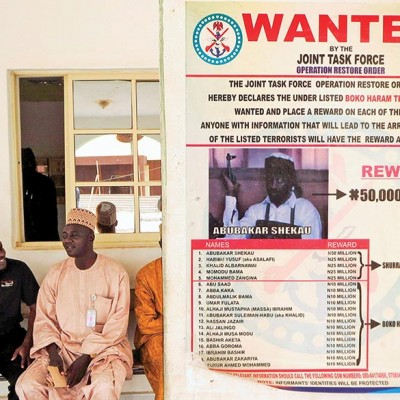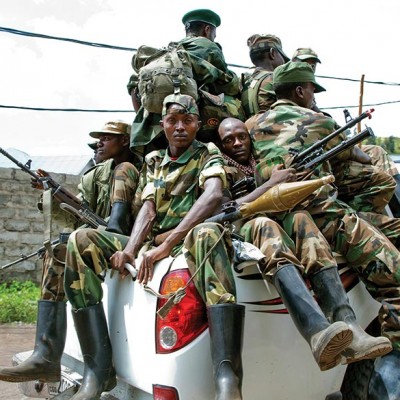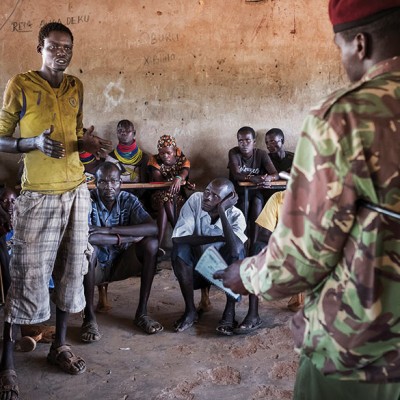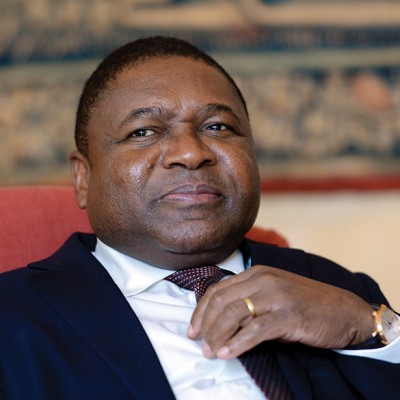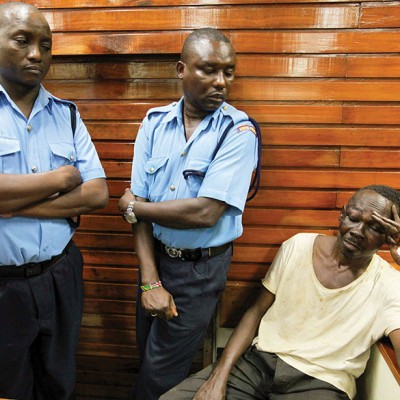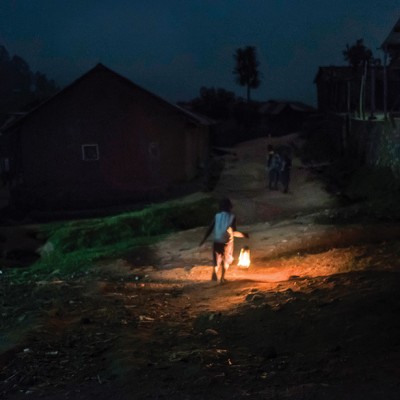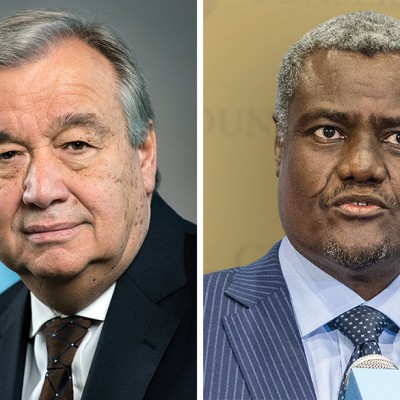Introduction
The year 2016 witnessed the intensification of conflict in Mozambique – albeit in a sporadic fashion – mainly between the ruling Mozambique Liberation Front/Frente de Libertação de Moçambique (Frelimo) government, presided over by President Filipe Jacinto Nyusi, and Mozambican National Resistance/Resistência Nacional Moçambicana (Renamo) forces, led by Alfonso Marceta Macacho Dhlakama. This is a continuation of the conflict that was revived in 2012 by Renamo, driven by several grievances including allegations of economic marginalisation, regional economic imbalances and breach of the 1992 Rome General Peace Accords (GPA) – which had ended the post-independence civil war fought from 1977 to 1992. The escalation of conflict in Mozambique in early 2016 resulted in the displacement of citizens in the affected areas, whilst thousands of people crossed the borders into Malawi and eastern Zimbabwe as refugees.1
This article assesses the latest conflict developments in Mozambique and identifies the critical underlying issues driving the conflict. The article recommends that a formally structured all-stakeholder inclusive national dialogue platform (INDP) be established to discuss the identified critical issues and formulate possible interventions that can be adopted to suppress the conceivable resurgence of civil war in Mozambique. This will lay the basis for an effective and sustainable mediation process.
Mozambique’s Civil War and Post-civil War Conflict Dynamics
The post-independence civil war in Mozambique took place from 1977 to 1992, after the country attained its independence from the Portuguese colonial administration in June 1975. The civil war started when Renamo was formed by the Central Intelligence Organisation of Rhodesia (now Zimbabwe), after then-president Samora Moisés Machel started supporting the Zimbabwe National Liberation Army (Zanla) in its armed struggle against Rhodesia. Initially, Renamo was a collection of Frelimo dissidents and those soldiers who had fought together with the Portuguese during the colonial struggle, and was reportedly funded and supported by Rhodesia, apartheid South Africa, Portugal, West Germany, the United States (US) and Malawi.2 After 1992, Renamo transformed from being a rebel movement into a political party, led by Dhlakama – successor to a former Frelimo soldier, André Matsangaissa, who had died in 1979.
Since 1994, Frelimo has won all elections, and Renamo has consistently contested the outcome of the elections and threatened violence over allegations of electoral fraud and manipulation.3 Electoral complaints, as well as socio-economic and political grievances, led to the re-emergence of conflict in 2012.
The Re-emergence of Conflict in Mozambique (2012–2016)
The period between 1992 and 2012 witnessed subdued conflict. From 2012 to 2016, the conflict intensified, with Renamo alleging that the government was unwilling to address its demands – which include electoral reforms, the integration of its forces into the national army, greater representation in the institutions of the state, addressing allegations of state corruption, the depoliticisation of state institutions, the autonomy of provinces under Renamo “control”, and the equitable sharing of national resources.4 By August 2016, the United Nations High Commissioner for Refugees (UNHCR) reported that there were 12 000 Mozambican refugees in Malawi.5 Zimbabwe had received about 4 000 Mozambican refugees by September 2016,6 whilst others fled to South Africa and Tanzania.
Mediation Efforts: Actors, Issues and State of Negotiations
In June 2016, the Mozambican government agreed to the assistance of international mediators to negotiate peace, and dialogue resumed in July 2016. These mediators were from Botswana, Tanzania, South Africa, the European Union (EU), Britain, the Vatican and the Catholic Church. A joint commission, with representatives from Renamo and Frelimo, was set up to engender favourable conditions for the conduct of meetings between President Nyusi and Dhlakama, and facilitate the cessation of violence.
The issues under negotiation included:
- Renamo’s demands for “provincial autonomy”, or control of six out of 11 Mozambican provinces (Manica, Nampula, Niassa, Sofala, Tete and Zambezia);
- the cessation of military action;
- the restructuring of the Mozambican Defence Armed Forces/Forças Armadas de Defesa de Moçambique (FADM);
- the reintegration of Renamo forces into the national army, and their inclusion in senior ranks of the army;
- the reinsertion of Renamo forces into society; and
- a separation between public administration and political parties.7
The international mediators left in December 2016, amid little progress reported on the issues under discussion. The EU representative hinted that “they would return if they received an express invitation from the Joint Commission”.8 However, conflict continued, with incidences such as the December 2016 attack on a Beira-bound train loaded with coal for export in Sofala,9 as well as the reported Renamo-government forces clashes in January 2017.10 These clashes occurred despite an announcement on 3 January 2017 – made by Dhlakama and endorsed by Nyusi – of a 60-day ceasefire.
Towards an Inclusive and Transformative Dialogue: Key Issues to Consider
The mediation of talks between Renamo and Frelimo may not be the best way forward to resolve the larger-than-political party issues at stake, as it reduces the talks to elite bargaining and politicised consensus-building. An inclusive process is needed, whereby all citizens, through various representative associations, are provided a platform for comprehensive discussions that should culminate in concrete proposals and strategies to be considered for adoption and implementation by the government, so as to sustainably address the underlying issues of conflict. Dialogue should allow for genuine interaction and the exchange of different perspectives on the conflict, and can foster the countrywide consensus necessary for conflict prevention and peacebuilding.
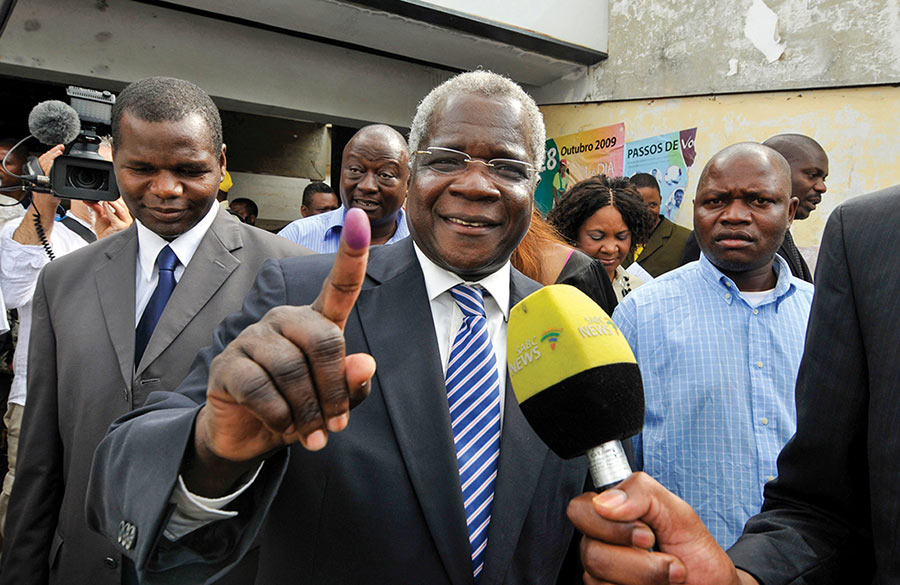
A formally structured INDP should be established, comprising all political parties, civil society organisations (CSOs), academia, labour, business, religious organisations and all representative stakeholders in Mozambique. The INDP should be mandated with four principal responsibilities: (1) to comprehensively identify the underlying issues driving the Mozambican conflict; (2) to exchange ideas and strategies on the way forward; (3) to develop short-term and long-term intervention proposals that will be considered for adoption and implementation by the government; and (4) to establish an institutional framework for the monitoring, evaluation and review of the implementation of INDP interventions. This will lay the ground for a more sustainable mediation process.
The proposed INDP should have an expanded discussion framework that transcends Dhlakama’s demands. The following key thematic issues should be prioritised and considered for discussion by the proposed INDP.
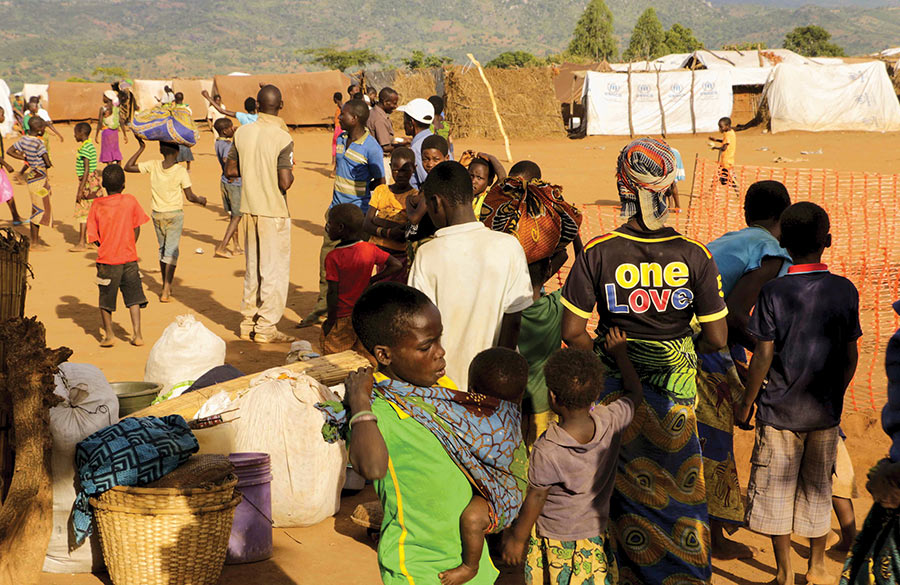
Inclusive Economic Growth and Development Agenda
The ongoing conflict may be viewed as a symptom of various challenges facing Mozambique as a country. Whilst the decentralisation of the six provinces merits discussion, mediators should facilitate a broader dialogue that prioritises an economic transformation agenda. The INDP should exchange ideas on how Mozambique can establish capable institutions and comprehensive strategies to harness its resource potential and comparative economic advantage for the benefit of its people.
At the core of dialogue should be the grand question on how to revive and transform the post-conflict economy in Mozambique. In his article “Mozambique: ‘The War Ended 17 Years Ago, but We are Still Poor'”, Joseph Hanlon argues that economic management strategies in post-civil war Mozambique exacerbated inequality and social exclusion, thereby creating a “serious risk of conflict”.11 Extreme poverty, poor service provision by government, high unemployment and horizontal and vertical inequalities are obvious conflict ingredients all over the world.
Whilst the country has been listed as one of the six African countries (in addition to Côte d’Ivoire, Djibouti, Ethiopia, Rwanda and Tanzania)12 that make up the 10 fastest-growing economies in the world, this growth has largely been statistical. There have been substantial investments in the country’s resource sectors. The United Nations Conference on Trade and Development (UNCTAD) World Investment Report of 2016 ranks Mozambique as the second-largest recipient of foreign direct investment (FDI) in the Southern African Development Community (SADC) after South Africa for the period between 2010 and 2015.13 Investments were received mostly in its mining sector, as Mozambique is endowed with huge quantities of aluminium, coal, gold, graphite, ilmenite, iron and steel, limestone, natural gas, rutile, tantalum, titanium and zircon, among other minerals. All this has not substantially transformed lives and livelihoods in Mozambique.
Although the Standard Bank Group projected that liquefied natural gas in Mozambique will generate US$39 billion for the economy over the next 20 years from 2015, and increase the country’s gross domestic product per capita by almost 700% by the year 2035 – from US$605 to US$4 500 – whilst creating 700 000 jobs within the same period,14 all these projections may fail to be realised if proper and appropriate systems and institutions are not put in place. The World Bank’s economic outlook for Mozambique in 2016 stated:
The adult literacy rate is 56%, and average life expectancy at birth is 50,3 years. Mozambique faces other challenges such as increasing malnutrition, and stunting. Malaria remains the most common cause of death, responsible for 35% of child mortality and 29% for the general population […] The social progress index for access to improved sources of water and sanitation ranks Mozambique 128th and 119th respectively out of 135 countries. Indeed, Mozambique has one of the lowest levels of water consumption in the world despite being endowed with a variety of water sources.15
Since factors such as frequent floods, cyclones, droughts and plummeting global mineral commodity prices have also contributed to the economic challenges facing Mozambique, it is prudent that the proposed INDP should engage in discussions around identifying strategies that the country can adopt to cushion itself from natural calamities and the vagaries of global commodity markets. The proposed INDP should therefore discuss progressive economic development alternatives and models that are capable of transforming the Mozambican economy in a manner that delivers broad-based and inclusive socio-economic development, so as to create conditions for national harmony, peace and stability.
Decentralisation
Renamo’s priority demand, made in September 2015 – and which remains contentious – is the clamour for “provincial autonomy”, or control of six out of 11 Mozambican provinces (see Table 1) on the basis of the 2014 election outcome. Dhlakama argues that this is the only way to resolve electoral disputes and ensure development in these regions. It is worthwhile to understand the outcome of the 2014 national assembly and provincial elections.
Table 1: Provincial distribution of National Assembly seats in Mozambique (2014)16
| Province | Political Party | |||
| Democratic Movement of Mozambique (MDM) | Renamo | Frelimo | ||
| 1 | Niassa | 1 | 6 | 7 |
| 2 | Cabo Delgado | 0 | 3 | 19 |
| 3 | Nampula | 3 | 22 | 22 |
| 4 | Zambezia | 5 | 22 | 18 |
| 5 | Tete | 1 | 10 | 11 |
| 6 | Manica | 0 | 8 | 8 |
| 7 | Sofala | 3 | 10 | 8 |
| 8 | Inhambane | 0 | 2 | 12 |
| 9 | Gaza | 0 | 0 | 14 |
| 10 | Maputo Province | 2 | 3 | 12 |
| 11 | Maputo City | 2 | 3 | 11 |
| 12 | Africa | 0 | 0 | 1 |
| 13 | Europe | 0 | 0 | 1 |
| TOTAL | 17 | 89 | 144 | |
*Note that Africa and Europe in the above table are two single-member constituencies that represent Mozambican citizens in Africa and Europe.
Table 1 indicates that Frelimo got 144 National Assembly seats and Renamo got 89 seats, whilst the MDM garnered 17 seats.17 In terms of provincial distribution, Frelimo got the majority seats in seven provinces – Niassa, Cabo Delgado, Tete, Inhambane, Gaza, Maputo City and Maputo Province – in addition to the Africa and Europe constituencies. Renamo gained majority seats in only two provinces – Zambezia and Sofala. Thus, it can be difficult to conclude that Dhlakama/Renamo controls six out of Mozambique’s 11 provinces.
Proceeding from this faulty and misleading premise will jeopardise the decentralisation dialogue, which should be developmental in orientation and outlook. Decentralisation should not be used as a “foot-in-the door” technique to eventually clamour for regional secession or separation. Instead, discussions on the choice, structure, framework and form of decentralisation should espouse the spirit and philosophy of national unity, integration, cohesion, democratisation and the enhancement of social service delivery. In this regard, INDP stakeholders can draw from the successes, limits and challenges faced after the adoption of the Decentralised Planning and Financing Project in 2014.
Reintegration of Renamo Combatants
Scholars have debated whether Mozambique can be regarded as a success story of post-civil war stabilisation.18 Whilst maintaining that post-civil war peacebuilding in Mozambique showed progress after 1992, Reppell et al have argued that the “incomplete implementation of some of its peacebuilding needs resulted in continuous recurrences of violence and threats to the overall stability of the country”.19
Thus, it is critical to allow the proposed INDP to discuss the issues of reintegration, demobilisation benefits for (and reinsertion of) Renamo forces, and inclusion of these forces in the national police and intelligence services. Practically, this may be a complex demand when one considers the sensitivities of such security apparatus in any country. Discussions should consider training and development, integrated psychosocial support, capacity-building and community development projects through the assistance of civil society organisations (CSOs), non-governmental organisations (NGOs) and other actors with a view to fully restore mutual trust, community acceptance and recognition among Renamo forces and government. In this regard, the proposed INDP should learn lessons from the limitations of the post-1992 disarmament, demobilisation and reintegration (DDR) initiatives.
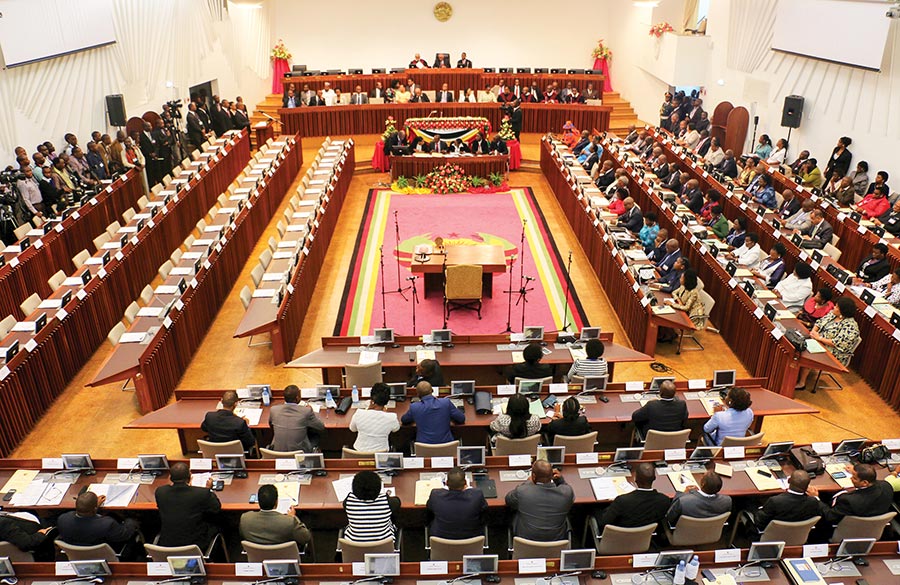
Public Sector Reforms and Electoral Reforms
The demand by Renamo for the government to facilitate the separation between public administration and political party is progressive. Fredson Guilengue refers to this politicisation of public institutions as the “Frelimization of the state”, arguing that government officials and their families have their influence in state institutions, the national economy and the media.20 This conflation compromises the rule of law, accountability and anti-corruption control; threatens meritocracy in public administration; breeds patronage; affects the separation of powers; and erodes public trust and confidence in public institutions. All these create unnecessary tensions, polarisation and, ultimately, conflict. The proposed INDP should establish the state of public sector management in Mozambique, identify challenges and discuss policy reform proposals.
Regarding electoral reform, the proposed INDP should analyse the election processes that have been conducted so far in Mozambique to establish an electoral reform agenda. The latest election observer mission reports as well as media reports may be helpful.
As previously indicated, all election observer missions deployed to Mozambique reported that the October 2014 elections were free, fair, transparent and credible, thereby endorsing its outcome. However, if one analyses the observer missions’ reports, it is clear that there is still scope to improve the country’s electoral processes in terms of policy, regulations and law. For example, the Electoral Institute for Sustainable Democracy in Africa (EISA) and the EU observer teams’ recommendations included the need to involve CSOs in voter education, early accessibility of the voter’s roll, simplification of election results processing and tabulation, electoral transparency, review of the laws regulating financing political campaigns, impartiality in law and order maintenance by police, prohibition of the use of public resources in election campaigning, and the amending of electoral laws guiding election appeals.21 The proposed INDP might use this as a basis to identify any gaps within the existing electoral system, so as to highlight areas in need of reform.
Conclusion
Against a background of escalating conflict in Mozambique, it has been argued that limiting mediation and discussions exclusively to Frelimo and Renamo may not ensure sustainable conflict prevention and resolution. Thus, it has been suggested that a multi-stakeholder INDP be established to comprehensively discuss the four key issues of inclusive economic growth and development, decentralisation, reintegration of Renamo forces, and public sector and electoral reforms. The outcome of the INDP discussions should then be considered for formal adoption and implementation by government, so as to suppress the renewal of civil war in Mozambique. This will lay the basis for an effective and sustainable mediation process. As John Parker noted, “[U]ltimately, inclusive processes are better processes, [they facilitate] more informed deliberations, broader and deeper concurrence, resulting in more implementable and sustainable agreements.”22
Endnotes
- Domingos, Arimando (2016) ‘Mozambique: Banditry Forces Thousands Out of Mozambique’. AllAfrica, 19 September, Available at: <http://allafrica.co m/stories/201609200345.html> [Accessed 27 December 2016].
- Morgan, Glenda (1990) Violence in Mozambique: Towards an Understanding of Renamo. The Journal of Modern African Studies, 28 (4), pp.603–619. See also Rupiya, Martin (1998) Historical Context: War and Peace in Mozambique. In Vines, Alex and Hendrickson, Dylan (eds) The Mozambican Peace Process in Perspective. London: Conciliation Resources, p. 14.
- Reppell, Lissa, Rozen, Jonathan and De Carvalho, Gustavho (2016) Planning for Peace – Lessons from Mozambique’s Peacebuilding Process. Institute for Security Studies Papers, 291 (June 2016), p. 5.
- Dzinesa, Gwinyayi and Motsamai, Dimpho (2013) Renamo’s War Talk and Mozambique’s Peace Prospects. Policy Brief, Institute for Security Studies, p. 2.
- UN (2016) ‘Report of the United Nations High Commissioner for Refugees, Returnees and Displaced Persons and Humanitarian Questions’, United Nations General Assembly, 23 August, p. 6, Available at: <http://www.unhcr.org/excom/unhcrannual/5808d8677/assistance-refugees-returnees-displaced-persons-africa.html?query=mozambique%20december%202016> [Accessed 7 January 2017].
- Domingos, Arimando (2016) op. cit.
- Author unknown (2016) ‘Dhlakama Announces Seven Day Renamo Truce’. The Zimbabwean, 28 December, Available at: <http://thezimbabwean.co/2016/12/dhlakama-announces-seven-day-renamo-truce/> [Accessed 29 December 2016].
- Mozambique News Agency (2017) ‘Renamo Announces Two-month Ceasefire’. AIM Reports, 539, 12 January, Available at: <http://www.poptel.org.uk/mozambique-news/newsletter/aim539.pdf> [Accessed 13 January 2017].
- Mozambique News Agency (2016) ‘Renamo Attacks Coal Train’. AIM Reports, 538, 14 December, Available at: <http://www.poptel.org.uk/mozambique-news/newsletter/aim538.pdf> [Accessed 13 January 2017]. See also Mozambique News Agency (2016) ‘Renamo Murders Two Frelimo Officials in Sofala’. AIM Reports, 535, 2 November, Available at: <http://www.poptel.org.uk/mozambique-news/newsletter/aim535.pdf> [Accessed 13 January 2017]; and Mozambique News Agency (2016) ‘Renamo Attack in Nampula’. AIM Reports, 533, 6 October, Available at: <http://www.poptel.org.uk/mozambique-news/newsletter/aim533.pdf> [Accessed 13 January 2017].
- O País (2017) ‘Renamo Denounces “Threats” Following the Truce’. 10 January, Available at: <http://opais.sapo.mz/> [Accessed 13 January 2017].
- Hanlon, Joseph (2010) Mozambique: ‘The War Ended 17 Years Ago, but We are Still Poor’. Conflict, Security & Development, 10 (1), p. 77.
- AfDB/OECD/UNDP (2016) ‘African Economic Outlook’ (15th Edition), p. 24, Available at: <https://www.afdb.org/fileadmin/uploads/afdb/Documents/Publications/AEO_2016_Report_Full_English.pdf> [Accessed 5 January 2017].
- UNCTAD (2016) ‘World Investment Report 2016’, p. 197, Available at: <http://unctad.org/en/PublicationsLibrary/wir2016_en.pdf> [Accessed 5 January 2017].
- Court, Alex and McCarthy, Diane (2015) ‘Massive Gas Discovery Transforms Mozambique Backwater into Boomtown’. CNN, 3 February, Available at: <http://edition.cnn.com/2015/02/03/africa/pemba-port-mozambique-gas/> [Accessed 11 January 2017].
- World Bank (2016) ‘Mozambique: Economic Outlook Overview’, Available at: <http://www.worldbank.org/en/country/mozambique/overview> [Accessed 5 January 2017].
- Hanlon, Joseph (2014) ‘Mozambique Political Process Bulletin’. CIP/AWEPA, 56-28 (November), p. 14, Available at: <https://www.open.ac.uk/technology/mozambique/sites/www.open.ac.uk.technology.mozambique/files/files/Mozambique_Bulletin_56_Election_results_2014(1).pdf> [Accessed 22 December 2016].
- Ibid.
- See, for example, Wiegink, Nikkie (2015) Former Military Networks a Threat to Peace? The Demobilisation and Remobilization of Renamo in Central Mozambique. Stability: International Journal of Security and Development, 4 (1); Maschietto, Roverta Holanda (2016) Post-war Mozambique: Designing Peace, (Re) Distributing Power (?). In Beyond Peacebuilding. UK: Palgrave Macmillan, pp. 119–160; McMullin, Jaremey (2004) Reintegration of Combatants: Were the Right Lessons Learned in Mozambique? International Peacekeeping, 11 (4), pp. 625–643; Dzinesa, Gwinyai Albert (2007) Post-conflict Disarmament, Demobilization, and Reintegration of Former Combatants in Southern Africa. International Studies Perspectives, 8 (1), pp. 73–89.
- Reppell, Lissa et al (2016) op. cit., p. 6.
- Guilengue, Fredson (2013) ‘Mozambique: Why has Renamo Gone Back to the Bush?’ Pambazuka News, 28 November, Available at: <https://www.pambazuka.org/governance/mo%C3%A7ambique-why-has-renamo-gone-back-bush> [Accessed 9 January 2017].
- EISA (2014) ‘EISA Observer Mission Report: Presidential, Legislative and Provincial Assembly Elections’. 15 October, pp. 55–57, Available at: <https://www.eisa.org.za/pdf/moz2014eomr.pdf> [Accessed 13 January 2017]; See also EU (2014) ‘Mozambique Final Report General Elections’. European Union Election Observation Mission, 15 October, pp. 43–44, Available at: <https://eeas.europa.eu/sites/eeas/files/eueom_mozambique_2014_finalreport_en.pdf> [Accessed 12 January 2017].
- Packer, John (2013) ‘Challenges and Opportunities of Inclusivity in Peace Processes’, Available at: <http://peacemaker.un.org/sites/peacemaker.un.org/files/ChallengesOpportunitiesInclusivity_Packer_2013.pdf> [Accessed 23 December 2016].

